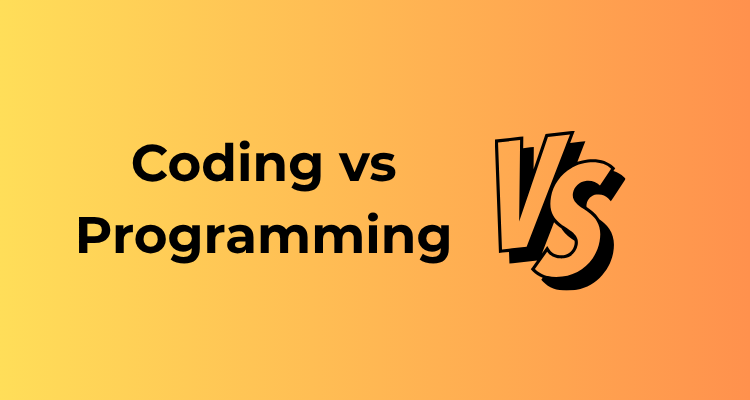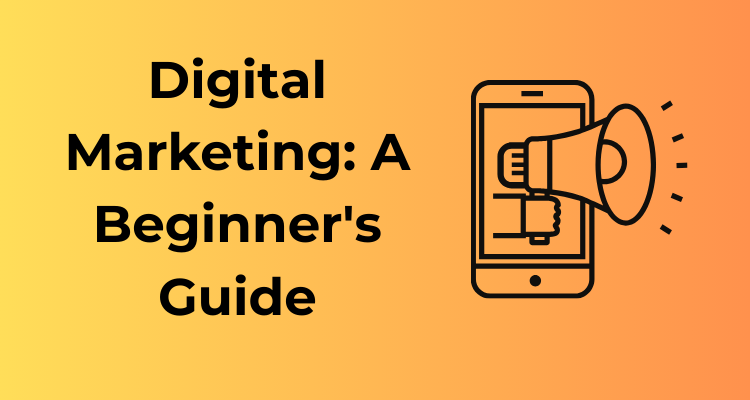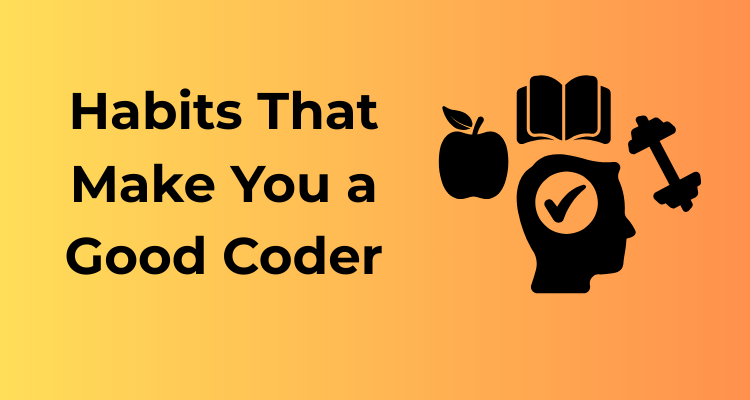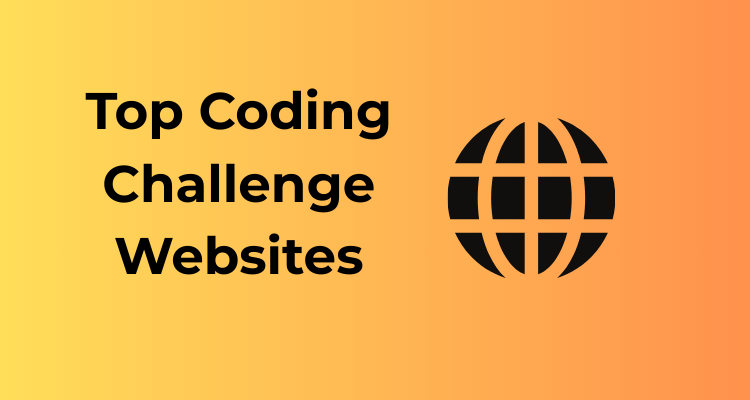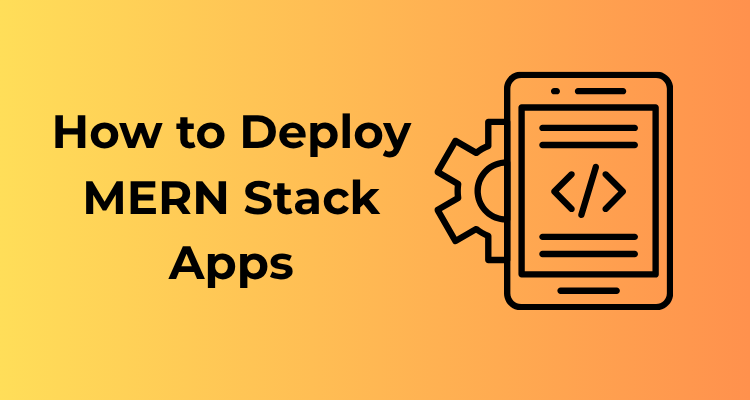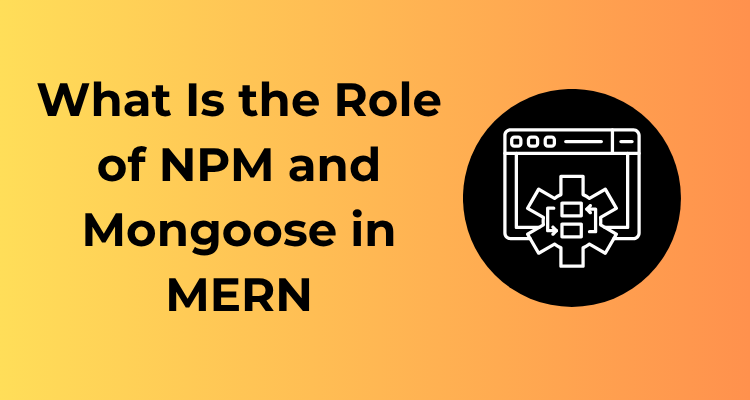So, you’re diving into the world of tech, and you keep hearing the terms “coding” and “programming” being tossed around. Are they the same? Not really. While they’re closely related, they have distinct meanings. Let’s break it down in a simple, digestible way!
Think of coding as the foundation for everything. At its core, coding is the process of writing instructions that tell a computer what to do. These instructions are written in specific languages, like Python, JavaScript, or C++. For example, if you wanted your computer to display “Hello, World!” on the screen, you would write a short set of commands — that’s coding! It focuses on syntax (the rules of the language you’re using) and ensuring your code runs correctly.
Now, programming goes a step further. If coding is writing sentences, programming is writing entire books. It’s all about planning, designing, testing, and maintaining software systems. Programming isn’t just about writing the code; it’s about solving problems, figuring out how different parts of a system work together, and ensuring everything runs efficiently and reliably. Where coding is tactical, programming is strategic.
Let me put it another way. Imagine you’re baking a cake:
- Coding: Measuring out the ingredients, mixing them, following the recipe exactly.
- Programming: Deciding what type of cake you want, making a recipe, choosing the right tools, and planning the entire process so you end up with something delicious (and maybe even making adjustments if things go wrong).
So, why does the distinction matter? When you understand what separates coding from programming, you can better identify what skills you need depending on your goals. Want to create a quick script or automate a simple task? Mastering the basics of coding could be a great start. Dreaming of designing whole systems, like a mobile app or a complex software platform? Delving into the art (and science!) of programming is the way to go.
Here’s a key takeaway: Coding is a subset of programming. All programmers are coders, but not all coders are programmers. While coding is essential, programming includes a much broader set of skills, like debugging, testing, and even collaboration with teams.
Language and Complexity: The Tools of Each Discipline
When we talk about coding and programming, it’s like comparing two close-knit friends with distinct tastes in gadgets and tools. While both deal with creating and working with software, their toolkits and levels of complexity set them apart. Let’s dive into this illuminating world of languages, tools, and the intricacies of each discipline to uncover the magic that coding and programming bring to technology!
Breaking Down Coding Languages
Imagine coding as learning to speak a language that computers understand. Coders work with high-level programming languages, such as:
- Python – A favorite among beginners and pros alike for its simplicity and versatility.
- JavaScript – The go-to language for creating dynamic websites and interactive user experiences.
- HTML/CSS – Essentials for crafting the very bones and beauty of websites.
These languages are often designed to be straightforward, making coding a great entry point for those just stepping into the tech world. Coders primarily write lines of instructions which, when combined, perform specific tasks – like creating a responsive button or animating a banner on a website.

The Sophistication of Programming
Programming, on the other hand, ramps up the complexity by focusing on the architecture and logic behind large systems. Instead of just writing chunks of code, programmers design entire systems or applications that solve intricate problems. They often work with mid-to-low-level languages and tools like:
- Java – A powerful, general-purpose language often used for enterprise-level applications.
- C++ – A language valued for its performance and ability to control hardware elements.
- SQL – Used to manage and manipulate databases efficiently.
- R – A statistical computing language beloved by data scientists.
Programmers leverage these tools to develop entire software ecosystems, handling everything from backend functionality to improving user experience (on a larger scale). It’s not just about “writing code” but creating blueprints for how different systems interact – like a conductor orchestrating a symphony.
Scripting vs. Engineering: The Complexity Gap
While coders may often focus on scripting (writing smaller, specific code snippets to perform tasks), programmers take it a step further. They teeter between technical prowess and creative problem-solving, often employing concepts like algorithms, data structures, and even computational theories.
Did you know? Coding can often appear more accessible due to its focus on syntax and simple tasks, while programming requires a deep understanding of logic and processes.
This isn’t to say one is harder than the other – they’re simply different. Coding lays the foundation, while programming constructs the skyscraper on top. Both are pivotal to creating the technology we use every day.

What Language Should You Learn First?
Ah, the golden question for beginners! The answer depends on what excites you. Want to create a website? Start with HTML, CSS, and JavaScript. Fascinated by apps? Give Python or Java a shot. If you’re keen on diving deep into system-level programming, languages like C++ are your allies.
In essence, coding gets your hands dirty with the nuts and bolts, while programming challenges your intellectual gears to construct cohesive, functioning systems. No matter where you begin, remember that every “Hello, World!” project is a step into a broader world of creation. Choose your tools wisely, and happy learning!
Role and Purpose: How Coding Drives Systems and Programming Designs Solutions
If coding and programming were members of a band, coding would be the skilled instrumentalist mastering their part, while programming would be the composer crafting the entire symphony. Both are essential to the music, but their roles and purposes differ in fascinating ways!
What Does Coding Really Do?
Let’s think of coding as the powerhouse that brings ideas to life. It involves writing instructions in a specific programming language to achieve a particular task within a system. Whether it’s creating a webpage, automating processes, or running a function, coding is the act of telling a computer exactly what to do and how to do it.
It’s about executing the smaller pieces that, when combined, form part of the bigger picture. Imagine writing the code for a login system: lines of code to take input (like username and password), validate it, and grant or deny access. It’s precise, task-focused, and, yes, immensely satisfying when it works!
In short, coding is the engine that powers systems. Without it, no software or application could run. It’s the hands-on, technical work that breathes life into broad ideas.
What About Programming? The Bigger Picture
On the other hand, programming zooms out and takes on a more holistic view. Programming is about designing entire solutions. It combines logical thinking, planning, and — yes — coding to solve problems and bring concepts to fruition. Think of it as being the architect who designs the skyscraper, considering not just the construction but also how the structure fits into the cityscape.
The programmer doesn’t just write code; they map out the problem, break it into manageable parts, decide which technologies best suit the solution, and figure out how all those pieces interconnect. It’s about asking questions like:
- What’s the goal of this application?
- Which tools and frameworks are the most efficient here?
- How will different components work together smoothly?
This blend of problem-solving and strategy means that programming is about much more than just executing code — it’s about designing a cohesive and functional solution. It’s creative and analytical at the same time!
The Real Difference? Purpose and Perspective
The role of coding is to execute actions through written commands, while programming takes a step back to design and orchestrate the overall process. Think of coding as laying each individual brick, and programming as designing the house they’ll form. Both roles are vital, and understanding this difference can help focus your learning or career goals.
Here’s a fun analogy: if coding is writing the sentences, programming is writing the story. The purpose of coding is technical execution, while the purpose of programming is delivering end-to-end solutions.
Why Does It Matter?
Understanding their roles clarifies how these disciplines contribute to tech. If you love getting into the nitty-gritty of syntax and lines of code, coding might be your calling. If you’re excited by planning, problem-solving, and seeing the big picture, programming could be your path. And if you can merge both? Well, that’s where the magic truly happens!
Skillsets Compared: What Makes a Good Coder vs a Successful Programmer
Hello, tech explorers! When diving into the worlds of coding and programming, we often come across a question: what exactly sets a good coder apart from a successful programmer? Well, let’s break things down in a relatable and engaging way.
Good Coder: The Skilled Wordsmith of Instructions
A good coder is someone who knows how to “speak” a programming language fluently. They are meticulous in writing clean, efficient, and bug-free code that translates ideas into actionable commands for computers. If we think of coding like crafting a poem, a coder ensures every “line” of code is precise, elegant, and follows proper structure.
Here are some defining traits of a good coder:
- Detail-Oriented: Spotting and solving syntax errors is second nature to a coder.
- Persistent: Debugging, testing, and refining code requires immense patience.
- Syntax Mastery: A deep understanding of their chosen language (like Python, JavaScript, or C++) is crucial.
- Specialized Focus: Coders often excel in a specific domain or set of technical tools.
If you find joy in the intricacies of code, debugging gives you an adrenaline boost, and creating something functionally beautiful makes your day, you’re already gearing up to become an amazing coder!
Successful Programmer: The Big-Picture Innovator
On the other hand, a successful programmer doesn’t just write code — they design solutions. Think of programming as storytelling. A programmer maps out the entire journey, from understanding the problem to delivering a complete and functional software solution.
Here are the hallmarks of a thriving programmer:
- Problem-Solving Pro: They don’t just write code; they design logical systems to effectively solve real-world challenges.
- Team Player: Programmers often work collaboratively, managing contributions, reviewing code, and maintaining version control.
- Architectural Thinking: They craft software designs that scale, maintain efficiency, and stand the test of time.
- Strategic Decision-Making: They evaluate trade-offs between performance, scalability, and technical limitations.
To summarize, programmers take an idea and transform it into reality, ensuring it’s user-friendly, secure, and scalable. If you enjoy brainstorming solutions, assembling the puzzle pieces of a project, and steering a team toward success, programming is where you’ll shine.
The Overlap and Synergy
Here’s the beautiful twist: coding and programming aren’t mutually exclusive. While you can be a coder without diving deep into programming, the best programmers are usually excellent coders first. It’s a progression. Coding is the foundation — a skill that allows you to communicate with computers. Programming, on the other hand, builds on that foundation to address complex problems and deliver value.
For example, a coder might write a script to automate repetitive tasks, but a programmer will design an entire system to integrate that automation into a larger workflow.
Practical Applications: From Writing Scripts to Developing Entire Ecosystems
If you’ve ever wondered how coding and programming make their mark in the tech world, this is where the magic happens! Let’s chat about how these two disciplines fuel all kinds of practical applications—from the everyday to the extraordinary. So buckle up and let’s explore how scripts transform into sprawling digital ecosystems.
Building Blocks Start with Scripts
Think of coding like laying the first bricks of a house. Scripts are lightweight, quick pieces of code that solve specific tasks or automate processes. For example:
- A Python script to rename 1,000 files in a folder in seconds.
- A JavaScript snippet to add interactive buttons to your website.
- An HTML/CSS combo that makes your blog pop.
These are practical, targeted solutions that make life easier. Coders thrive in this domain, focusing on writing clean, efficient code that delivers results. It’s incredibly empowering, whether you’re a newbie or an experienced coder!
Scaling Up to Software and Apps
Now, when we bring in programming, things start to scale up significantly. Programmers take coding to the next level by designing systems and software that impact how businesses run or how we interact online. For instance:
- Mobile Apps: From your favorite meal delivery app to that game you can’t stop playing, programming is the backbone of their functionality.
- Web Development: Programmers use frameworks, cloud databases, and tools to create dynamic websites that serve millions.
- Business Software: Think ERP systems, CRM platforms, or anything that helps manage large-scale operations.
Here, programming integrates coding with design principles, testing, and problem-solving to create robust applications that are adaptable and scalable. It’s an art as much as it is a science!
Creating Entire Ecosystems
For the grand finale, let’s talk about ecosystems. This is where programming becomes a visionary endeavor. Developers focus on interconnectivity, ensuring various components (software, APIs, servers, databases) work harmoniously together. Examples include:
- Smart Cities: Systems monitor traffic, control lighting, and enhance waste management to improve urban living.
- Games like MMORPGs: They require vast networks of programming to handle player interactions, physics engines, and global servers.
- AI and Machine Learning Platforms: Collecting, analyzing, and applying complex data to give us smarter technologies like recommendation engines or self-driving cars.
This level of development doesn’t just require technical expertise; it demands strategic thinking, collaboration, and often a touch of foresight into the future of technology.
Why It’s All a Big Deal
From scripts to entire ecosystems, coding and programming are fundamentally changing the way we live, work, and communicate. They solve problems big and small, from automating tedious tasks to creating cutting-edge technology. Whether you’re interested in fixing little annoyances with simple code or dreaming of building a system that transforms industries—there’s a place for you in this exciting world.
In the end, coding and programming work hand-in-hand, flowing seamlessly from one into the other. So, why not dive in? You never know where your first script might lead—maybe into shaping the next great digital ecosystem!
Common Misconceptions: Myths About Coding and Programming
Let’s be real—when it comes to coding and programming, there’s a lot of confusion out there, and myths galore. At first glance, these two fields might seem practically identical to the untrained eye. However, as any insider can tell you, there are some substantial differences. Let’s bust a few of the most common misconceptions about coding and programming while having a friendly chat about what makes them unique.
1. Coding and Programming Are the Same Thing.
Okay, this is the big one. A lot of people lump “coding” and “programming” into one bucket, but they’re actually quite distinct. **Coding** is essentially writing the instructions in a language that computers can understand—think of it as translating from human ideas into ones and zeros. **Programming**, on the other hand, is more like crafting an entire system of solutions. While coding is a part of programming, programming involves everything from designing algorithms to testing and debugging.
Think of coding as building bricks and programming as creating the blueprint and construction plan for an entire house. Yes, you need bricks to put up the house, but there’s so much more to it!
2. Good Coders Are Automatically Good Programmers.
Not necessarily! Coding and programming might overlap, but they also involve different skill sets. A coder might write incredibly efficient, clean code, but that doesn’t mean they’ll be great at project planning or creating complex software architecture—which is the realm of programming. Programmers bring a broader perspective, thinking about things like scalability, cross-platform compatibility, and long-term maintainability.
So, don’t assume that being amazing at one makes you a master at the other. Both roles shine when they complement each other, kind of like peanut butter and jelly in a sandwich.
3. Once You Learn One Language, You’re Set.
Ah, we love this optimistic notion. While learning your first coding or programming language (like Python or JavaScript) is a big milestone, the tech world evolves very quickly. **Being adaptable** is crucial. A great coder or programmer is always ready to pick up new languages or tools as projects demand. You’ll often hear people in the industry say: “Languages are just tools.” Essentially, mastering the way to think like a coder or programmer (logical thinking, problem-solving) is far more valuable in the long run than attaching your entire identity to a single language.
4. You Have to Be a Math Genius to Code or Program!
Now this one has scared off countless creative, talented people—unjustly so, I might add. Sure, having a logic-oriented mindset is helpful, but you don’t need to be solving calculus problems in your sleep to succeed. Many aspects of coding and programming are more about **creativity, persistence**, and keen attention to detail than crunching numbers.
In fact, tech is becoming increasingly beginner-friendly, thanks to resources like no-code tools, drag-and-drop design platforms, and robust documentation. If you have a passion for technology and an eagerness to learn, don’t let math anxiety block your path!
5. Coding and Programming Are Only for Tech Jobs.
This couldn’t be further from the truth. Coding and programming knowledge is valuable across industries. Whether it’s automating tasks in marketing, analyzing data in finance, or even optimizing supply chains, the applications are endless. **Think outside the box—your coding skills are an asset no matter where you work!**
Plus, having even basic coding knowledge can boost your problem-solving toolkit, making it easier to navigate today’s increasingly digital world.
Career Insights: Which Path Suits Your Goals Better?
When you’re considering a career in tech, “coding vs programming” is likely one of the questions popping into your mind. It might seem like a small difference, but your choice between these paths could shape your professional journey. Let’s dive into some career insights to help you figure out which path aligns best with your goals and aspirations.
What Are Your Long-Term Goals?
First things first, ask yourself what excites you the most. Is it the thrill of solving smaller, granular problems, or are you more drawn to the idea of designing big-picture solutions? Coding is often focused on implementing specific tasks, such as creating a well-functioning piece of software through writing clean and working code. It’s very hands-on and detail-oriented.
On the other hand, programming could be considered slightly broader, involving not just coding but also planning, integrating, and solving multidisciplinary challenges. If you’re someone who loves orchestrating complex systems and making higher-level design decisions, programming might suit you better.
What Kind of Work Do You See Yourself Enjoying?
Here’s a handy way to look at it: think of coding as picking up a toolbox. You learn to use each tool precisely to craft something functional. If you love *building* things directly, writing lines of code to make software achieve a straightforward purpose, then coding could be your happy place.
Meanwhile, programming goes beyond just using tools—it’s like being the architect crafting the blueprint. Do you enjoy researching problem-solving methodologies, coming up with logic, and thinking about design patterns in the big picture? If so, then programming might just be your perfect calling.
Education and Training
Though both fields require a solid understanding of computer science fundamentals, the depth and focus of your learning may vary based on which direction you choose. For aspiring coders, a strong grasp of coding languages like Python, JavaScript, or HTML/CSS often suffices to kickstart an entry-level career.
For programming roles, however, the expectations extend beyond language proficiency. A programmer may need more knowledge in algorithms, data structures, and system design. Experience or certification in fields like software engineering, systems architecture, or project management might also come in handy.
Career Opportunities and Flexibility
The beauty of the tech industry is its flexibility! Coders often dive into positions such as software tester, junior developer, or freelance web developer. This path is fantastic if you like to focus on getting things done quickly and enjoy tangible outputs for your efforts.
Programmers, on the other hand, lean towards roles like software engineer, system architect, or even project lead. These roles can be more demanding but are often accompanied by broader responsibilities, higher salaries, and opportunities to manage teams or oversee large-scale projects.
So, Which Path Is Right for *You*?
Still unsure? Here’s a little secret: you don’t have to decide right away. Often in tech, the lines between coding and programming blur. You can start as a coder, master the basics, and gradually work your way into programming as you learn more and grow more confident. Or, if your interest leans toward strategic thinking, you might jump straight into programming-focused roles with supplementary coding skills on the side.
Ultimately, your choice will depend on what lights your inner spark. Whether you’re a code wrangler or a solution designer, the tech industry is vast enough to welcome you wherever your interests take you. The key is to keep learning, stay curious, and enjoy the ride!

